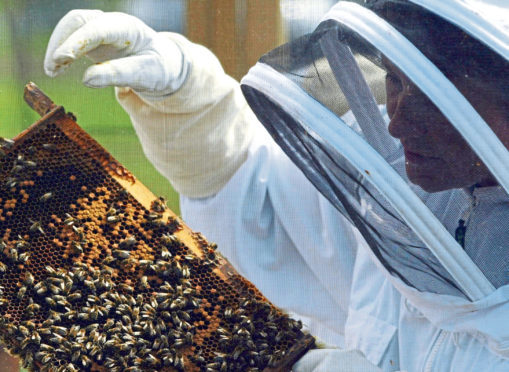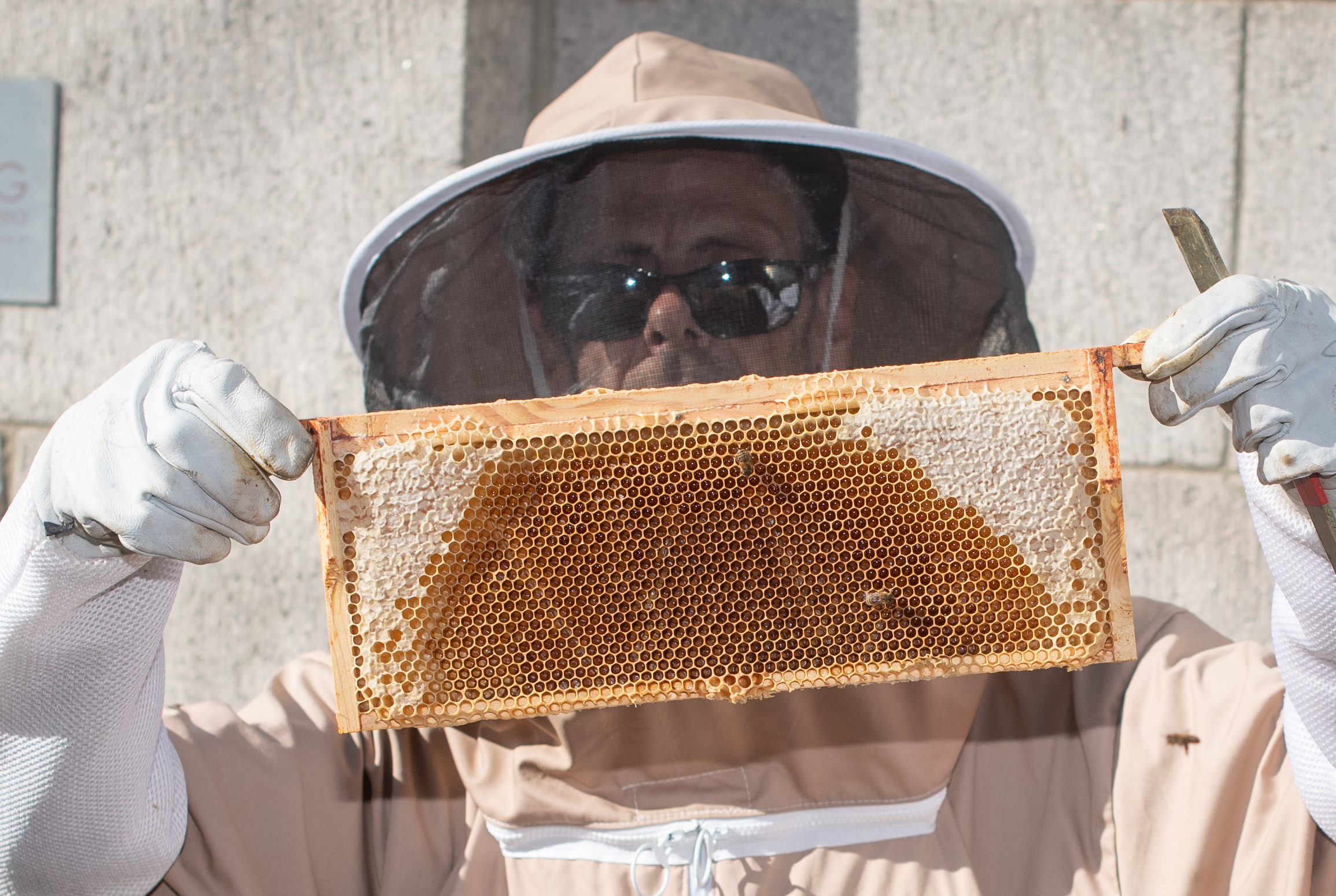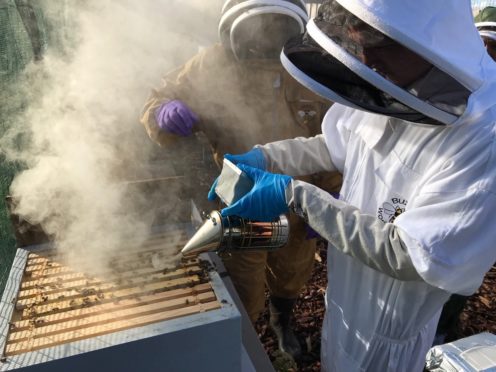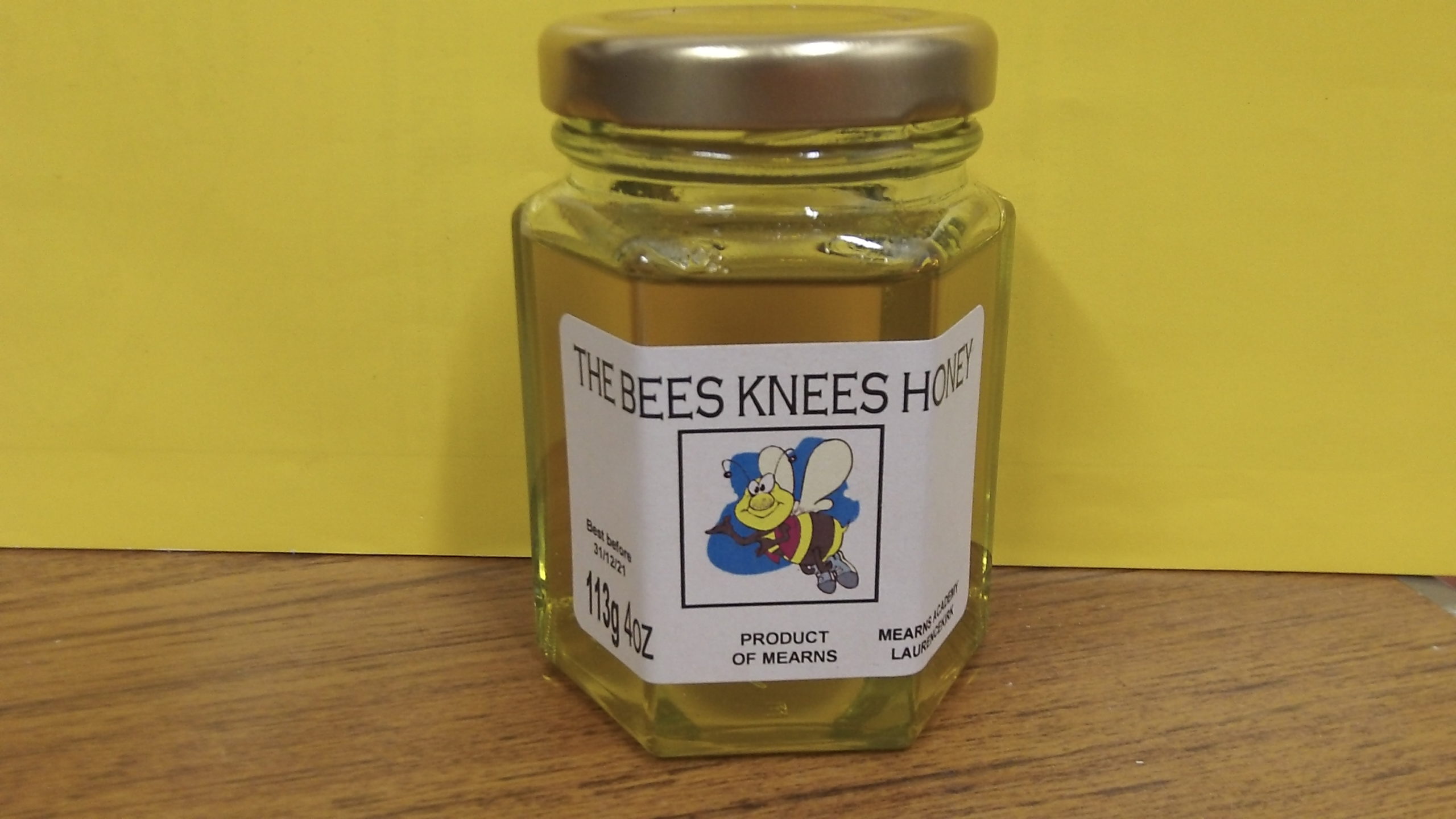Most teachers hope their classrooms are a hive of activity, but an Aberdeenshire school will soon bring new meaning to the phrase with a new beekeeping course.
Two beehives were installed at Mearns Academy by technology teacher Paul Sim last May, and over the past nine months he has used them to help pupils learn all about the fascinating insects, honey production and more.
Since then, two more hives have been added, and the school is in the process of setting up a national progression award (NPA) course in beekeeping, which will be offered to pupils as a Scottish Qualifications Authority (SQA) course choice this spring.
The qualification will cover topics like how best to care for your bees, feeding during the winter, swarm control, honey-making and jarring.
Mr Sim said the project has already created quite a buzz, and around 10 pupils are expected to sit beekeeping as an NPA over the next year.
He said: “The project started off because I had an interest in beekeeping, along with another technical teacher at the school, and we both have a couple of beehives ourselves.
“I investigated, and found out the SQA has an NPA in beekeeping, and I found out there were a couple of other schools in Scotland that had just started running the course.
“I got in touch with them, and it just took off from there.
“We applied to get approval from the SQA and got a couple of hives last May, which has now expanded to four.
“Mearns Academy is a rural community, so there’s a real interest in this.”
Mr Sim said the school’s hives are also already being put to use by teachers from other disciplines.
He added: “I spoke to a biology teacher, and she said it was actually part of the Higher Biology course to look at how animals communicate and work together.
“So I made up a hive with a viewing glass, and helped to tell the higher class about how the bees interact with each other, along with what we do to look after them and the issues bees are facing.
“Looking after bees teaches important rural skills, so it can be really beneficial course if the pupils are considering a future in agriculture, as well as other career paths.”
Growing concern at ‘staggering’ decline
Over the last 15 years, billions of honey bees have left their hives, never to return.
There has been growing public and political concern at the “staggering” bee decline across the world – in the UK tens of thousands has been pledged to identify new habitats for bees.
Intensive agriculture, habitat loss and the widespread use of harmful pesticides have all contributed to the crash in numbers.
People across the globe have been urged to do their bit to save the busy bees who are responsible for keeping the cycle of life turning by helping plants grow, breed and produce food.

They do so by transferring pollen between flowering plants.
Bees also pollinate around 80% of wildflowers in Europe, meaning colour would be drawn from landscapes across the continent if they are not saved.
In rural communities, many farmers rely on a diversity of bees to pollinate their produce.
For example, commercial apple growers benefit from the free pollination services of the Red mason bee.
It has been estimated that bees’ free pollination service could add £600 million of value to the UK’s crops every year and that a third of the food humans eat relies on bees for pollination.
Without them, it is theorised that the cost of food would “undoubtedly rise.”
Bee hives have cropped-up across the country as the nation turns to how to help the insects thrive.

The Scottish Parliament has 11 beehives on site, a “Bee Team” work on the rooftop of His Majesty’s Theatre and, last June, Kemnay Community Bee Group opened a new cabin and collection of beehives.
Now, with the additions of beekeeping courses at Mearns Academy, a whole new generation will play their part in rescuing bees from extinction.



